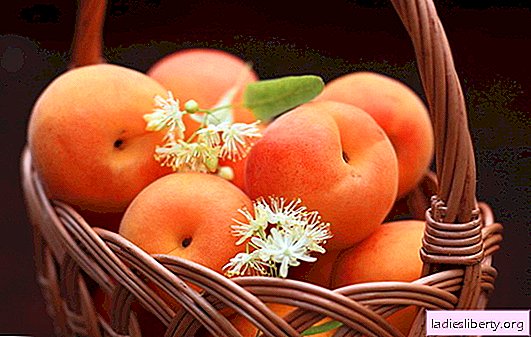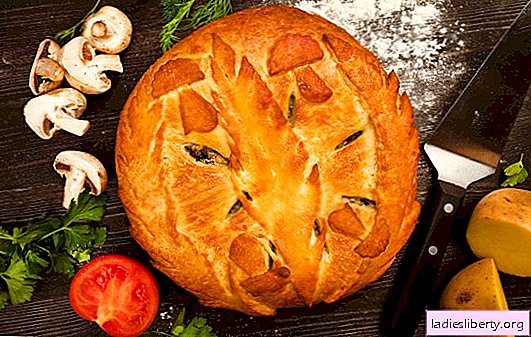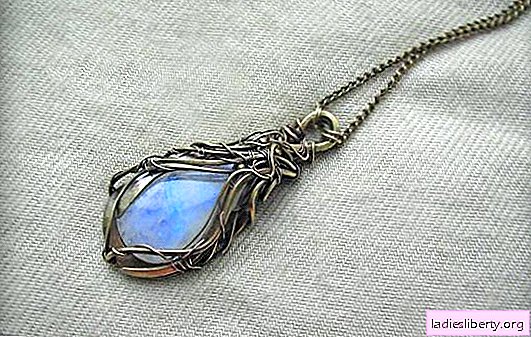
Echinacea (Echinacea) refers to those unique plants that combine decorative and medicinal properties. Arriving in our region from North America, she gained immense popularity both in the field of medicine and in floriculture. What useful properties does this interesting culture have and can it be harmful to health?
The benefits of Echinacea as a medicinal plant
The plant is a representative of the Astrov family, which delights in flowers of bright, saturated shades, sustained in red, pink, purple, raspberry colors. This is a large bush, reaching from 50 to 100 cm in height, blooming for more than two months per season. They are decorated with flower beds, used in multi-tiered and single plantings, planted next to the arbor or along the edge of the lawn. Of the 9 known species, Echinacea purpurea is most common.
Most of all, this perennial is valued not for its decorative effect, but for its therapeutic effect. The two most important beneficial properties for which this plant is respected are the purification of blood from unnecessary substances and the maintenance of the body's immune (protective) forces.
Note: About 10% of dietary supplements in the market of dietary supplements in Europe and North America are extracts of echinacea. But there is still no accurate scientific evidence that the plant is indeed a strong immunostimulant.
Moreover, no one denies the benefits of Echinacea in the treatment of a number of ailments, and all parts of the plant are used. Due to the content of a number of useful compounds, it is capable of:
· Fight against microorganisms and the inflammatory processes caused by them;
· To influence the reduction of the period of colds and diseases of the genitourinary system (only as an adjuvant);
· Remove with the help of teas or decoctions of mental or physical overwork after a hard working day;
· Restore the body after prolonged use of antibacterial drugs;
· Reduce joint pain with certain pathologies in this area;
· Solve many skin problems: treat dermatitis, furunculosis; help in the processes of regeneration (recovery) of the epidermis in case of burns, wounds, bites of snakes or insects;
· Increase the overall tone of the body and strengthen it.
There are many time-tested recipes that have really helped with these ailments and problems.
Note: Scientists continue to explore the properties of a unique plant. It is known that extracts with echinacea are part of a comprehensive treatment for cancer, AIDS, and are used for chronic fatigue syndrome.
Healing plant in the treatment of children
With often recurring childhood colds, the benefits of Echinacea are invaluable. It will not only relieve inflammation, but also support the baby’s body weakened by the disease. Of course, alcohol tincture is contraindicated for children, and the drug “Immunal” developed on the basis of a flower will come in handy. There are many other treatment options:
· Tea, which is insisted in a thermos for a richer taste (take 1-2 tsp. Herbs in a glass of boiling water);
· Tablets in powdered form;
· Syrup, designed for three times the use in the amount of 1-2 tsp.
Echinacea can not cause harm to the children's body: only individual intolerance refers to contraindications.
Important: Children under one year of age are recommended a decoction, since the syrup contains sugar and can cause diathesis. At this age, a pediatrician is needed to take the medicine.
Echinacea in cosmetology
When it comes to the healing properties of Echinacea, it’s worth talking about the cosmetic effect. It extends to the skin and hair. For the face created lotions, tonics, serums, creams containing the extract of a medicinal plant.
Echinacea is good for the skin in the following cases:
1. With acne, acne and acne, which is quite common in adolescence, with a hormonal imbalance. Created a cream with an organic extract of echinacea that can destroy the bacterial microflora, reduce inflammation and relieve irritation.
2. To reduce the depth of wrinkles due to the ability to smooth and smooth the skin. There are special cosmetics for aging skin, which not only reduce the number of wrinkles, but also reduce the risk of their appearance.
3. To soothe sore skin with injuries, cuts or burns. Tincture or dry powder not only disinfects open wounds, but also reduces pain.
Based on the plant, serums and shampoos for hair, enriched with its extract, were created. By improving microcirculation of the scalp and strengthening hair follicles, the extract prevents hair loss and enhances growth processes.
Shampoo containing Echinacea, with prolonged and regular use, eliminates dandruff, which causes peeling of skin flakes, itching and inflammation after scratching. With psoriasis and seborrheic eczema, shampoo is also able to provide all possible assistance in complex treatment with drugs.
There are ready-made masks of famous brands that are designed to strengthen hair. You can cook a mask at home. For this:
· In the egg add 0.5 tbsp. l onion juice;
· Enter 1 tsp. honey and tinctures of echinacea;
· Mix, creating a homogeneous composition;
· Apply to hair roots;
· Leave for an hour and rinse thoroughly.
All the ingredients "work" to strengthen the hair roots, give the curls strength and shine, nourish them.
Important: When buying a cosmetic product, carefully read the composition on the label: the first are the components in the most significant concentration. The brand of the product must be reliable, otherwise you can get the product without echinacea. In addition, it can be collected in ecologically unfavorable areas.
How to use Echinacea herb for health benefits?
Echinacea-based pharmacies offer dried flowers or an herbal mixture, tablets, capsules, powders, syrups, tinctures. Based on the existing problem, the appropriate form is selected. Extract used
· During sports training and high physical activity;
· To support the immune system;
· As a prophylactic for viral infections;
· After severely transferred diseases and antibiotic therapy.
With the help of tincture, they take care of problem skin. It is also added to tea, since in concentrated form it acts more efficiently. Its other forms are used according to the instructions and recommendations of the doctor.
Note: You will receive an excellent prophylactic if you add echinacea to herbal teas or brew separately like regular tea in the off-season, when you are more likely to get a cold.
Contraindications: harm to echinacea for the body
The list of contraindications is not so large. In rare cases, the plant can cause allergic manifestations. Herbal gathering from roots or flowers can trigger the development of insomnia. Echinacea is also not suitable for pregnant women, since its effect on the fetus has not been studied enough. A plant culture in any form (extracts, tablets, tinctures, etc.) is taken for no more than a month, after which a break is necessary.
As for the side effects, their list is somewhat larger. When taking can be observed:
Indigestion and nausea;
· dizziness;
Deterioration in asthma;
Fever and chills.
All these undesirable manifestations need to be discussed with a doctor or use another natural remedy during the complex treatment of various diseases.
Echinacea is not a miraculous herb or panacea for most diseases. Its beneficial effects in many ailments have not yet been proven by medical research. But help in the fight against infections, inflammation, strengthening the body’s immune barrier is within her power.











